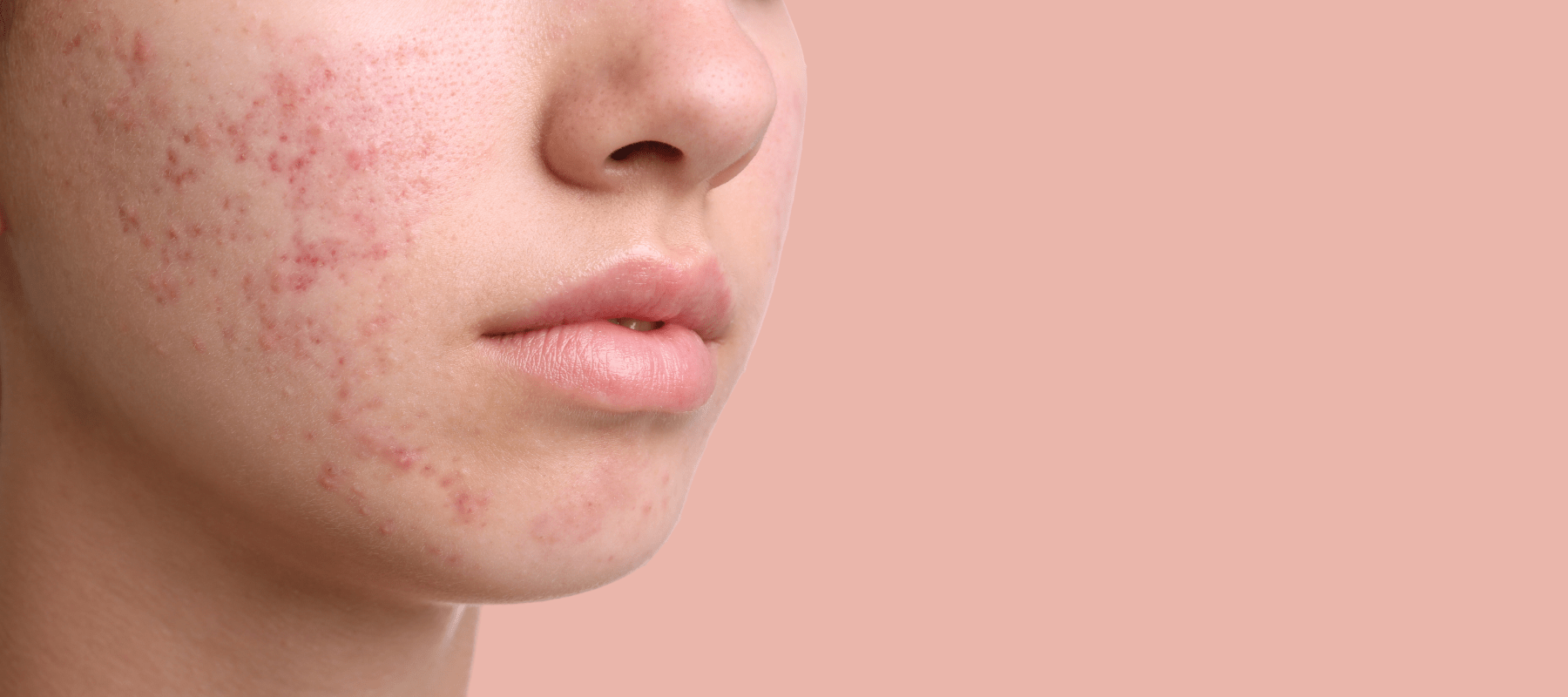
What is Acne Vulgaris: Causes, Symptoms, and Treatment
Have you heard of inflammatory and non-inflammatory skin imperfections like whiteheads and blackheads? They form due to these clogged follicles. However, acne vulgaris is the most common type that most people suffer from.
Acne vulgaris is a common skin ailment when skin oils, dead skin cells, or bacteria clog your hair follicles. Although more common among teenagers, anyone can experience acne vulgaris at any age. In this article, learn what is acne vulgaris, its common misconceptions, causes, symptoms, and treatment options. So, let’s start.
Introduction to acne vulgaris
Acne is among the most prevalent skin conditions nowadays, with almost 85% of the population aged between 12 and 24 dealing with it. Mild acne vulgaris mostly occurs in your adolescent years and early adulthood. However, it’s a common misconception that acne only occurs among teens. Reportedly, men and women in their 40s account for 12% and 25%, respectively.
Acne affects over 50% of women in their 20s, 33% of women in their 30s, and 25% of women in their 40s, says data from clinical trials. The good news is that there are several helpful therapy choices accessible.
Causes of acne vulgaris
Hormonal Factors
Androgens, or male sex hormones, rise during puberty and cause physical changes in teenagers. The production of enormous volumes of sebum by oil-producing glands known as sebaceous glands is one of the modifications. So, these oils can collect dead skin cells on the skin's surface and block pores.
Acne risk increases with increased sebum production. So, as you approach early adulthood, your androgen levels will typically drop to the point where acne flare-ups become less frequent and finally cease to exist. However, hormonal changes brought on by ailments such as the following may cause acne to persist well into the 40s for about 40% of women:
- Menstrual cycle
- Thyroid medications
- PCOS or Polycystic ovary syndrome
- Pregnancy
- Birth control pills
When a person reaches their 30s, they typically no longer experience recurrent acne. Still, some adults in their 40s or 50s struggle with acne.
Genetics
You might be more likely to get acne as an adult if you have first-generation relatives—a parent or sibling, for example—who have acne. Based on particular research, hyperactive sebaceous glands may be associated with specific gene variants that parents pass on to their offspring.
So, it appears that children of families where one or both parents suffer from severe acne that leaves scars are rarely spared from big eruptions of acne.
Lifestyle and environmental factors
According to certain research, eating a diet heavy in carbohydrates may aggravate or cause acne to appear. Foods with a high glycemic load—like white bread, cornflakes, and potatoes—cause blood sugar levels to rise rapidly.
Acne has been related to environmental pollution exposure, such as polycyclic aromatic hydrocarbons (PAHs). Furthermore, air pollution, cigarette smoke, and some work environments include polycyclic aromatic hydrocarbons (PAHs), which can aggravate skin irritation and oxidative stress.
Symptoms of acne vulgaris
It is your condition’s severity level that determines the signs and symptoms of acne you develop. These include:
- Open-clogged pores – Blackheads
- Pustules or papules filled with pus at tips – Pimples
- Pus-filled lumps beneath the skin – Cystic lesions
- Closed-plugged pores – Whiteheads
- Small tender and red bumps – Papules
- Painful, big, and solid lumps beneath the skin – Nodules
Also read: Understanding Acne Nodules: Causes and Treatment
Other signs and symptoms of acne vulgaris include:
- Scarring, itching, and burning of the skin
- Inflammation and redness of the skin
- Oily skin
- Post-inflammatory hyperpigmentation – Patches or dark spots on the skin after clearing acne
Understanding treatment options
Usually, a mix of proper skincare routine and lifestyle changes works perfectly as your acne vulgaris treatment option.
Changes in Lifestyle
Some individuals gain from altering their skincare routines, such as:
- Applying skincare products that are "non-comedogenic," like The Pink Foundry’s Acne Care & Healing Gel Moisturiser with Tea Tree & Cica. Since this moisturiser won't clog pores, they're less prone to aggravate acne.
- You should wash your face twice a day, wash the afflicted area of the skin with a face wash like the Clearing & Calming Acne Face Wash. Also, steer clear of harsh scrubbing and cleansers.
Medication
Acne is treated with a variety of medicines, including.
- Benzoyl: Benzoyl peroxide washes, lotions, and gels, available in different strengths with a prescription or over-the-counter, effectively eliminate the acne-causing bacteria C. acnes. Additionally, it aids in keeping pores clear.
- Salicylic Acid: This topical acid may aid in preventing pore blockage. Both prescription and over-the-counter versions are available.
- Azelaic Acid: This prescription medicine, which comes in gel or cream form, lessens pore blockage and eliminates bacteria that cause acne. It is okay to use this specific acne medication while pregnant.
- Topical Retinoid. These gels and creams have the potential to lessen pore congestion. Moreover, the topical retinoid that is most frequently recommended for the treatment of acne is tretinoin (Retin-A).
Also read: Amazing Benefits of Salicylic Acid for your Skin
Conclusion
For most people, acne vulgaris is the most frequent type. Although breakouts can happen to anyone at any age, teens are usually afflicted. Also, depending on the severity, acne can usually be treated with topical skincare products, oral medicine, dietary or lifestyle modifications, and/or specialised procedures like chemical peels.
FAQs:
What is the duration of acne vulgaris in days?
While individual acne lesions often disappear after two weeks, deeper papules and nodules might linger for months. Many people with acne also have seborrheic acne. What causes acne vulgaris the most frequently?
There are major causes of acne:
- Excessive oil production (sebum).
- Dead skin cells and oil restrict hair follicles.
- Microbes and Irritation.
Is stress a possible cause of acne vulgaris?
If you aren't already prone to acne, stress won't cause it, but it can exacerbate it by momentarily raising the levels of some hormones.






















































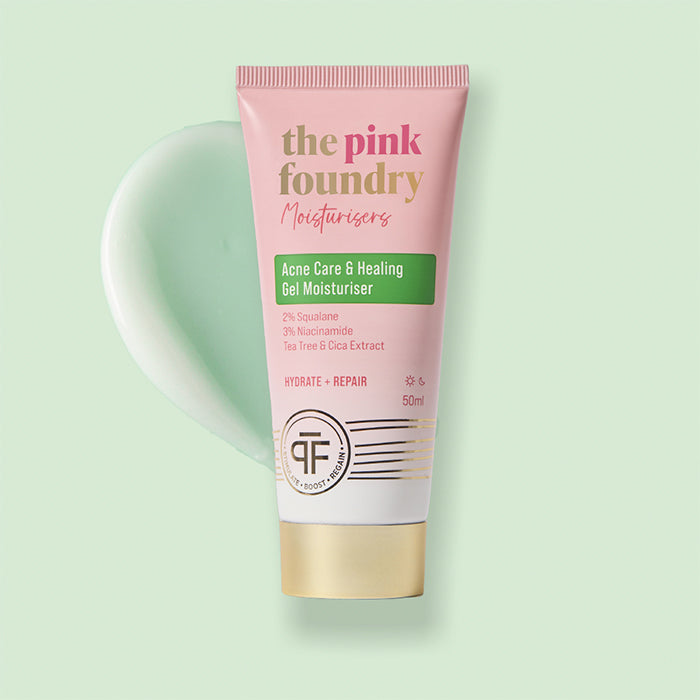
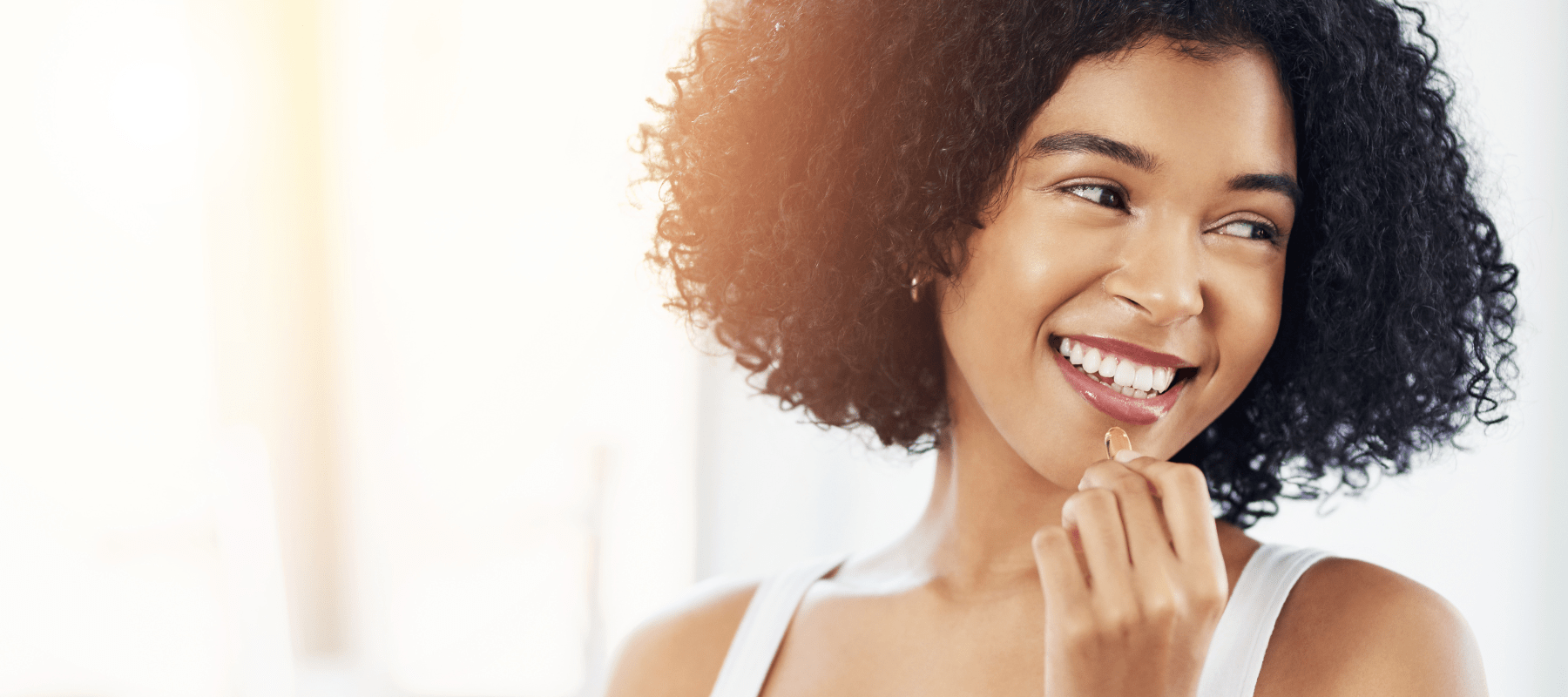
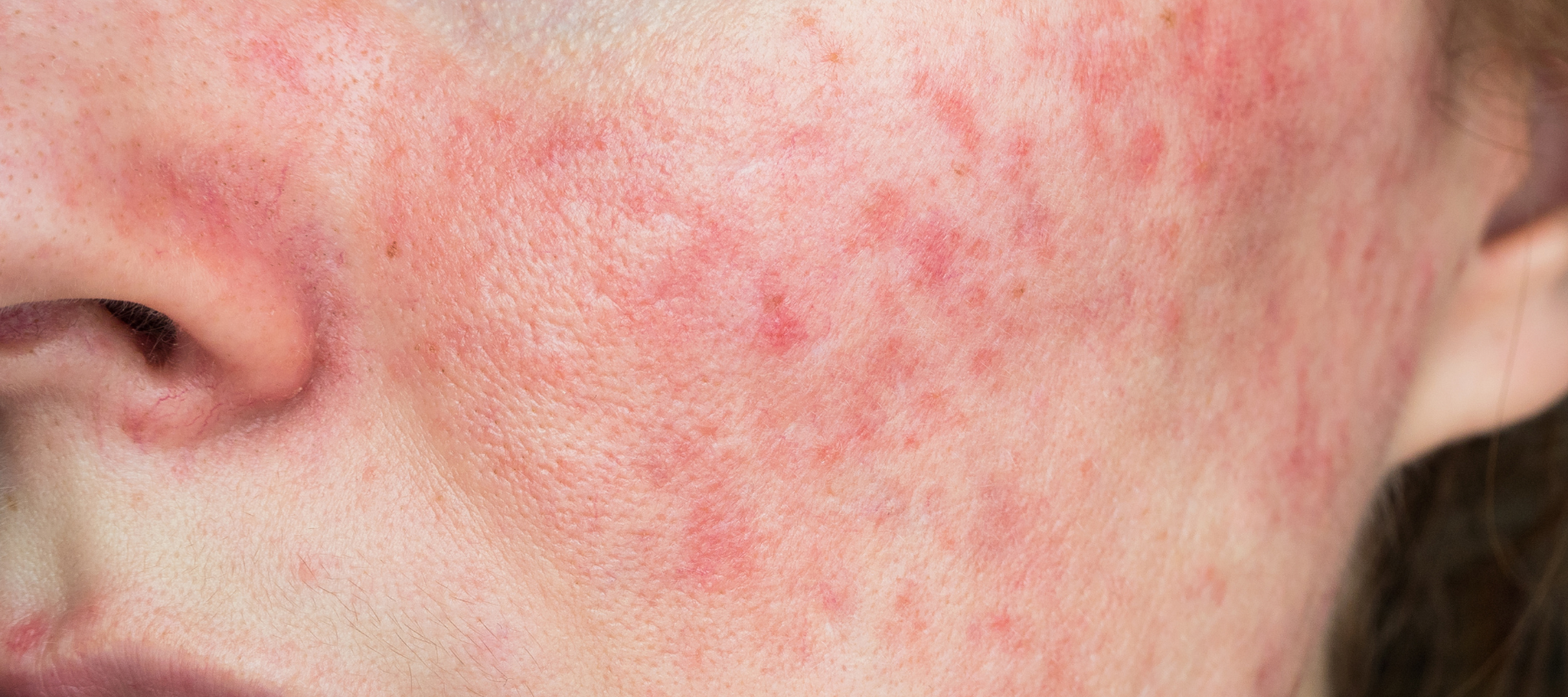
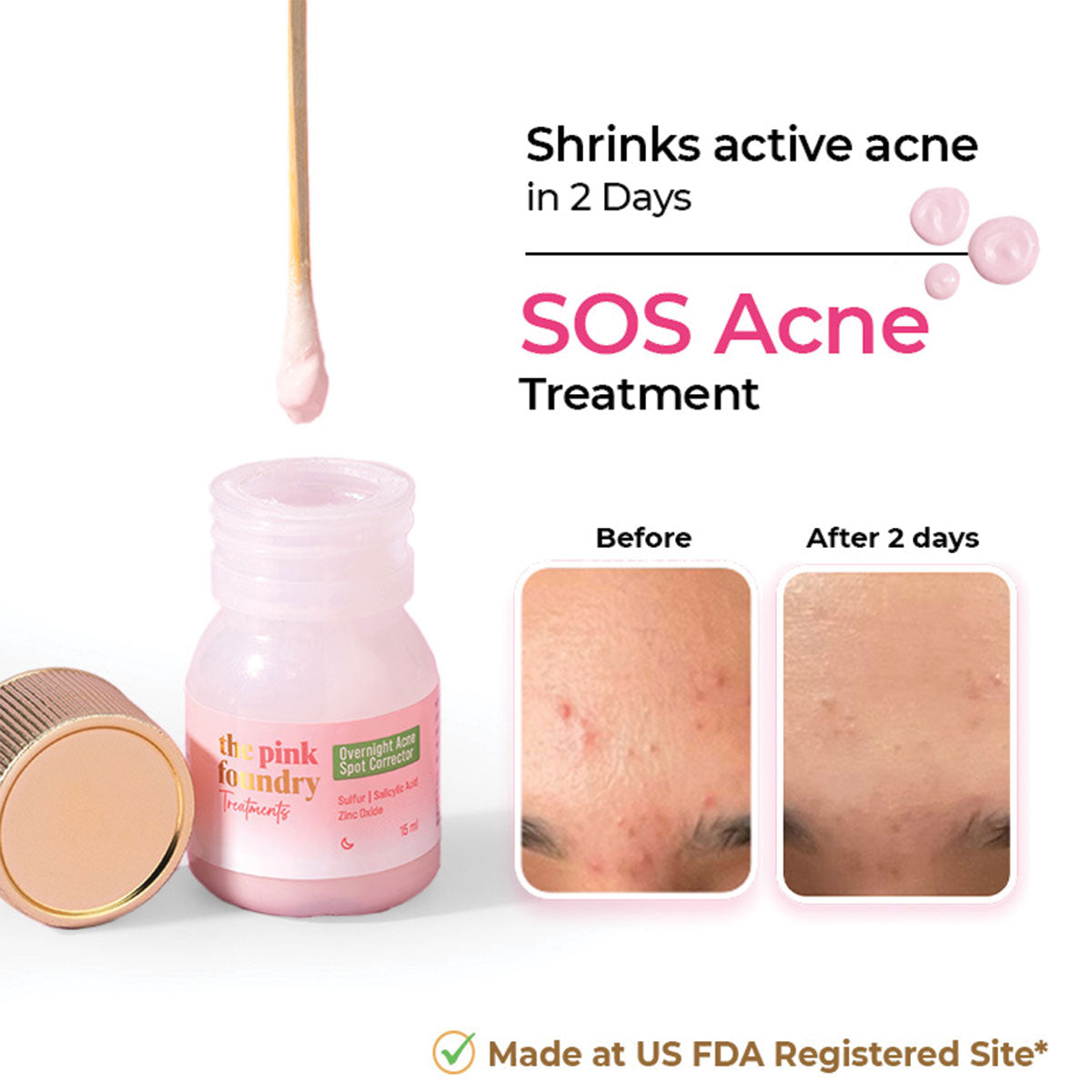
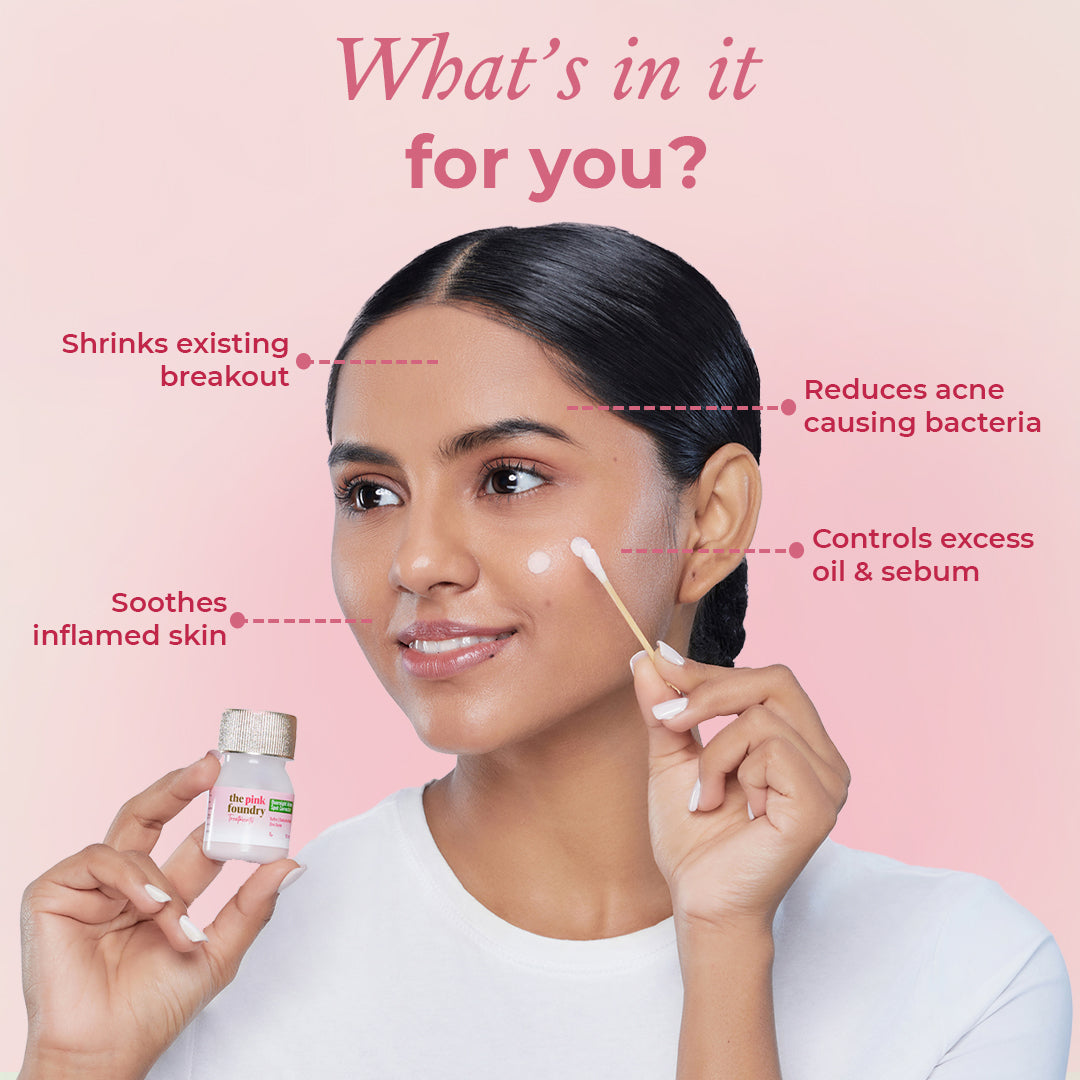


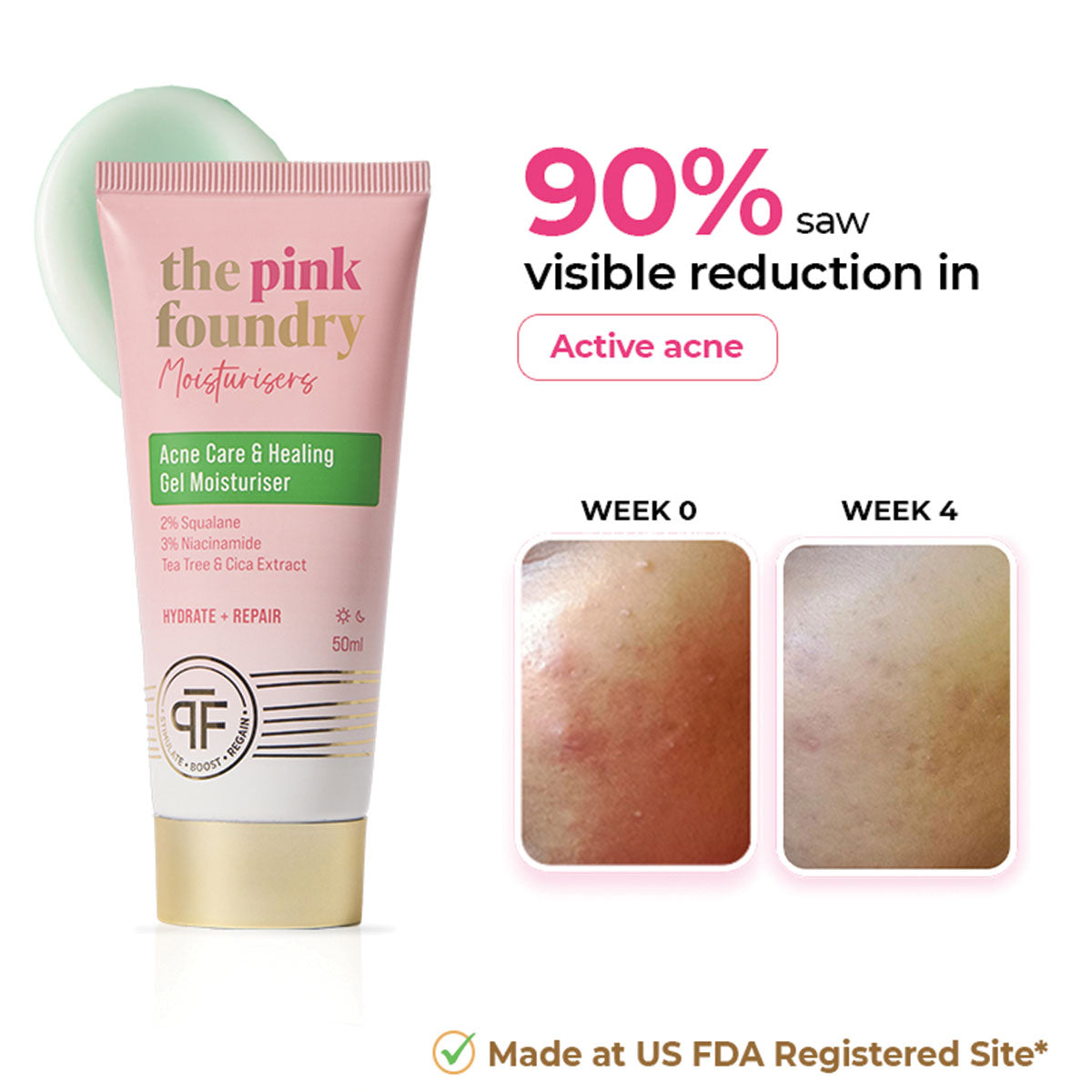
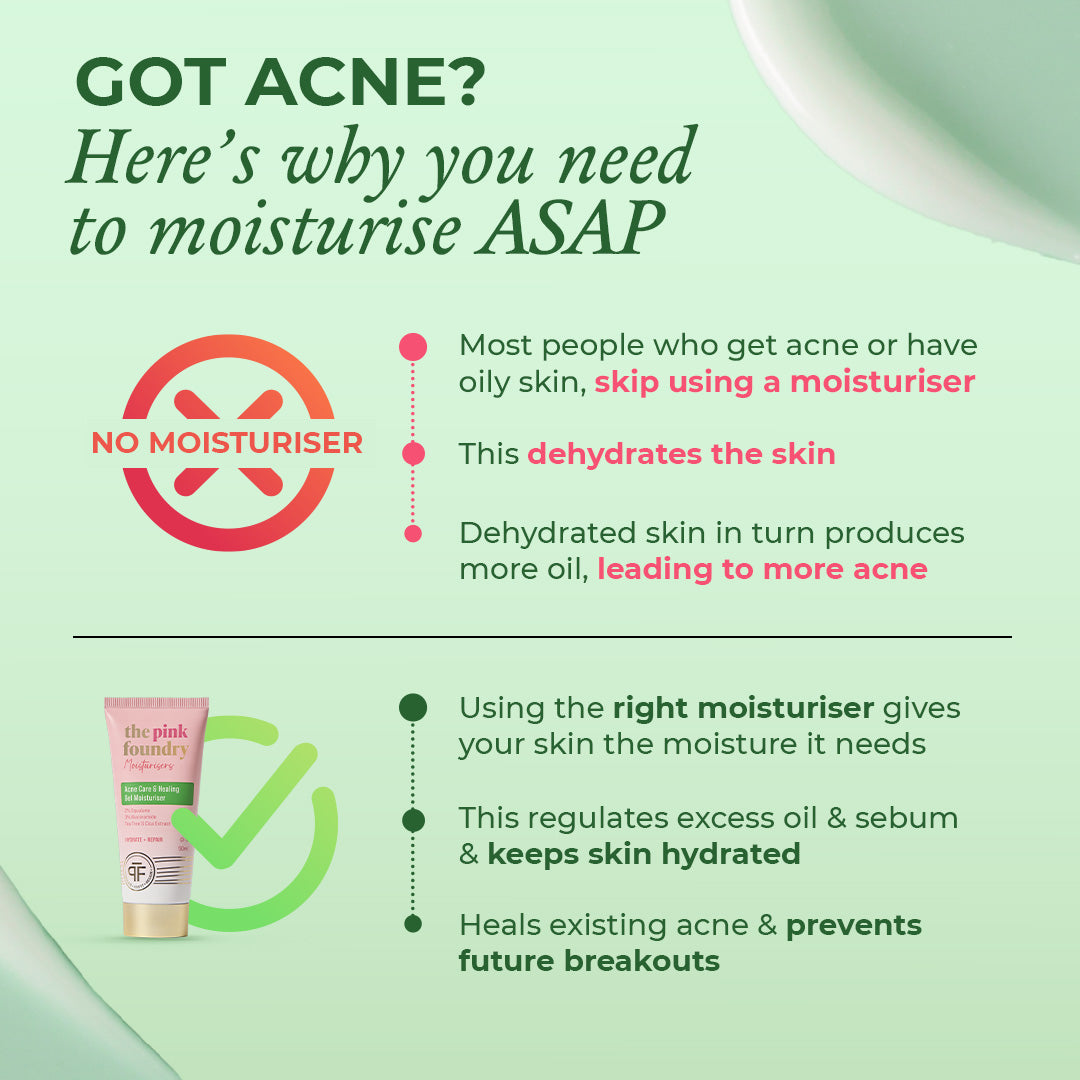










Leave a comment
This site is protected by hCaptcha and the hCaptcha Privacy Policy and Terms of Service apply.